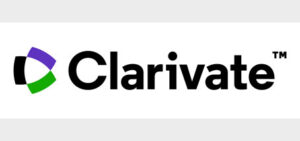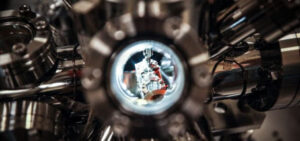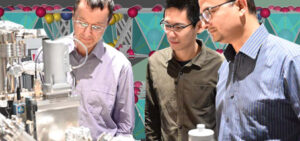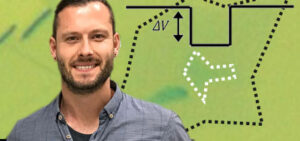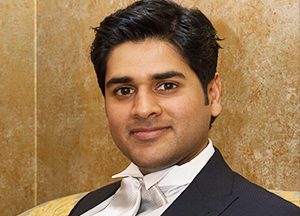FLEET News
“It’s interesting to consider how to hold ourselves accountable to the taxpayers that ultimately fund scientific research.” Early-career researchers from two Centres of Excellence gathered in Queensland this month, learning how to better translate their scientific discoveries to make an impact. The focus of Idea Factory 2022 was expanded to develop a wider understanding of research translation, the translation/commercialisation ecosystem, …
FLEET PhD candidate Maedehsadat Mousavi’s has reported in following attending the Sunrise innovation festival, building on her experiences at the EQUS-FLEET Idea Factory: “Previously, I would have never considered starting my own company or launching a start-up, but now I can see myself considering this future, and how an entrepreneur can have an impact on the world.” FLEET HDR students …
FLEET Translation funding is progressing zinc-ion battery technology, which offers decreased costs, safety, and improved environmental outcomes. Current commercial batteries are primarily based on lithium-ion technology, which is expensive and has significant safety concerns owing to incorporation of flammable organic materials. The proposed aqueous zinc-ion battery technology boasts improved safety (no toxic or flammable components), low-cost manufacturing, and recyclability. The …
Theoretical physicist and FLEET AI Karen Livesey (University of Newcastle) has today been announced as one of Australia’s newest Superstars of STEM. She is one of 60 diverse, brilliant scientists, technologists, engineers and mathematicians who want to step into the media spotlight as STEM experts – officially announced today by the Minister for Industry and Science, Ed Husic. Dr Karen …
Congratulations to FLEET’s Kourosh Kalantar-zadeh and Stefan Maier, named in the top 1% by citations in their fields. The Clarivate Analytics list identifies researchers ranking in the top 1% by citations for their field. The citation identifies influential researchers as determined by their peers around the globe – those who have consistently won recognition in the form of high citation …
2D oxide-based LED encapsulation extending device lifetime FLEET translation funding is supporting the next step in a liquid-metal printing application with significant commercial promise, in a project being led by RMIT PhD candidate Patjaree Aukarasereenont. Light-emitting diodes (LEDs) play a crucial role in modern society – from mobile phones to LED billboards and home lighting, LEDs are ubiquitous. There are, …
How substrates influence magnetism in 2D materials Interaction-induced magnetism in metal-organic frameworks on substrates A new study at Monash University illustrates how substrates affect strong electronic interactions in two-dimensional metal-organic frameworks. Materials with strong electronic interactions can have applications in energy-efficient electronics. When these materials are placed on a substrate, their electronic properties are changed by charge transfer, strain, and …
Gold may hold the key to unlocking an elusive but highly desirable reaction pathway. A new Australian-led stud finds gold atoms could be key to unlocking organic reactions. Organic molecules are the building blocks for materials we use every day – from our clothes and coffee cups to the screen displays of our phones. Controlling reactions of these organic molecules …
FLEET has made the following submission towards the proposed framework of Australia’s National Quantum Strategy. See Consultation Paper. The ARC Centre of Excellence in Future Low-Energy Electronics Technologies (FLEET; fleet.org.au) is a collaboration between Monash University, Australian National University, University of New South Wales, University of Queensland, RMIT, Swinburne University of Technology, and University of Wollongong, comprising around 200 leading …
By using and modifying catapults made from icy pole sticks and rubber bands, 270 primary students from Hughesdale Primary school learned about forces and energy and thought critically about FLEET’s research and why we are trying to develop energy efficient electronics. FLEET developed the Forces and energy workshop for Years 4-7 based on pilot workshops run with primary schools in …
FLEET Investigator A/Prof Bent Weber, and his team at NTU Singapore, have demonstrated unprecedented control of a one-dimensional flow of electrons in a rare quantum state that physicists have sought to understand for over half a century. The technique suggests a path to more-robust and more-accurate quantum computers. From: Nanyang Technical University, Singapore As you walk in a crowded shopping …
A UNSW/Flinders University paper published recently in Nature Reviews Materials presents an exciting overview of the emerging field of 2D ferroelectric materials with layered van-der-Waals crystal structures: a novel class of low-dimensional materials that is highly interesting for future nanoelectronics. Future applications include ultra-low energy electronics, high-performance, non-volatile data-storage, high-response optoelectronics, and flexible (energy-harvesting or wearable) electronics. Structurally different from …
Multidimensional coherent spectroscopy (MDCS) on monolayer WS2 reveals Fermi polaron interactions Phase-space filling drives new optical selection rules, where excitons compete for the same electron Identification of a novel, cooperatively-bound exciton-exciton-electron state Recent Australian-led research has provided a world’s first measurement of interactions between Fermi polarons in an atomically-thin 2D semiconductor, using ultrafast spectroscopy capable of probing complex quantum materials. …
High exciton-polariton density in an engineered quantum box Possible pathway to future, ultra energy-efficient technologies Australian researchers have engineered a quantum box for polaritons in a two-dimensional material, achieving large polariton densities and a partially ‘coherent’ quantum state. New insights coming from the novel technique could allow researchers to access striking ‘collective’ quantum phenomena in this material family, and enable …
Congratulations to Priyank Kumar at the School of Chemical Engineering, UNSW Sydney, who becomes a new Chief Investigator within FLEET. “I look forward to contributing to the objectives of FLEET through both fundamental and translational research,” said Priyank. “I would like to thank Michael Fuhrer, Kourosh Kalantar-zadeh and the FLEET team for providing me this opportunity.” Priyank has been an …





